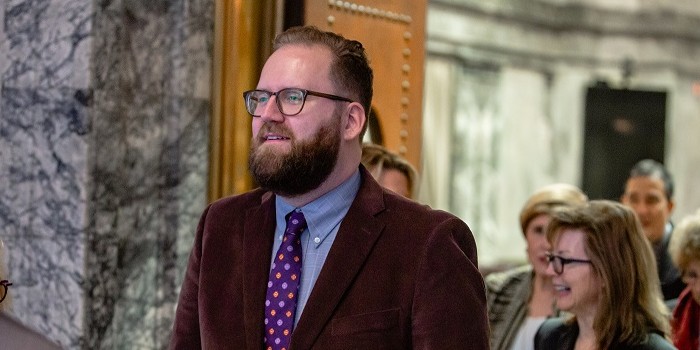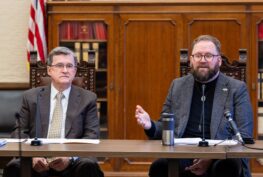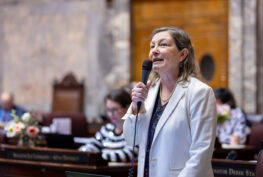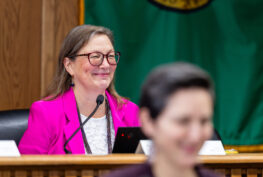The Senate today passed House Bill 1125, the 2023-25 transportation budget. The $13.4 billion plan invests in traffic safety, expands the state patrol and ferry workforces, funds green transportation options, and keeps work on schedule for transportation projects big and small across Washington.
The bill passed the Senate 46-3, passed the House 98-0 and will now head to Gov. Jay Inslee’s desk for his signature and to become law.
Senate Transportation Chair Marko Liias (D-Everett) was most proud of the emphasis placed on safety in this budget. With traffic fatalities at a 30-year high, a renewed emphasis on safety was a goal of the 2023 legislative session. Safety investments in this budget include:
- increasing safe routes to school
- mapping sidewalk gaps
- improving busy intersections
- introducing grade separation on rural roads to prevent serious crashes from lane departures
- directing the Traffic Safety Commission to study and respond to alarming safety trends
- addressing the section of Pacific Avenue at 134th St. in Parkland that led to the death of 13-year-old Michael Weilert, who was struck and killed while riding his bike at a crosswalk at that intersection in July 2022
“Washington state is a wonderful place to live for so many reasons, but unfortunately in recent years we have seen a spike in injuries and fatalities on our roads,” Liias said. “My belief is through the investments we made in this budget coupled with the policy changes we’ve passed this year, we can begin to turn the tide and ensure that all Washingtonians stay safe.”
The Senate’s safety agenda also includes investments to address the workforce shortage at the Washington State Patrol. Steps are being taken to offer bonuses, recruit already experienced officers to the force through the WSP lateral academy, and diversify the WSP through renewed efforts to recruit and retain women and people of color.
A focus on Washington’s ferry system is also at the core of this budget. That includes procurement of new ferries — including hybrid-electric vessels — in a timely manner, as well as addressing workforce shortages by empowering more diverse communities to seek out those careers.
In light of the accident earlier this week that saw the ferry Walla Walla run aground due to a faulty generator, $1 million was added in the second supplemental portion of the budget to reimburse Kitsap Transit as well as passengers that had to spend the night in Bremerton, as well as additional response services.
“The incident with the Walla Walla is yet another reminder of how unique and heavily relied on our ferry system is, and also how necessary it is that we get to work upgrading our fleet,” Liias said. “The passage of the procurement bill will get that process underway and the investments made in this budget and in Move Ahead Washington last session will make these upgrades a reality.”
There are approximately $969.8 million worth of investments in green projects in this budget from the recent Climate Commitment Act auctions. Those projects include increasing safe routes to schools, e-bike and school-based bike programs, ferry electrification, the conversion of medium and heavy commercial vehicles and port electrification as well as ultra-high-speed rail.
This budget also ensures that large transportation projects already underway continue to progress. Projects like the North Spokane Corridor, Highway 18, and Puget Sound Gateway (a critical connection that completes two critical missing links in Washington state’s highway and freight network) continue forward. Similarly, this budget continues our state’s commitment to put $1 billion toward replacing the I-5 bridge over the Columbia River.
The 105-day 2023 legislative session is scheduled to adjourn on April 23.





